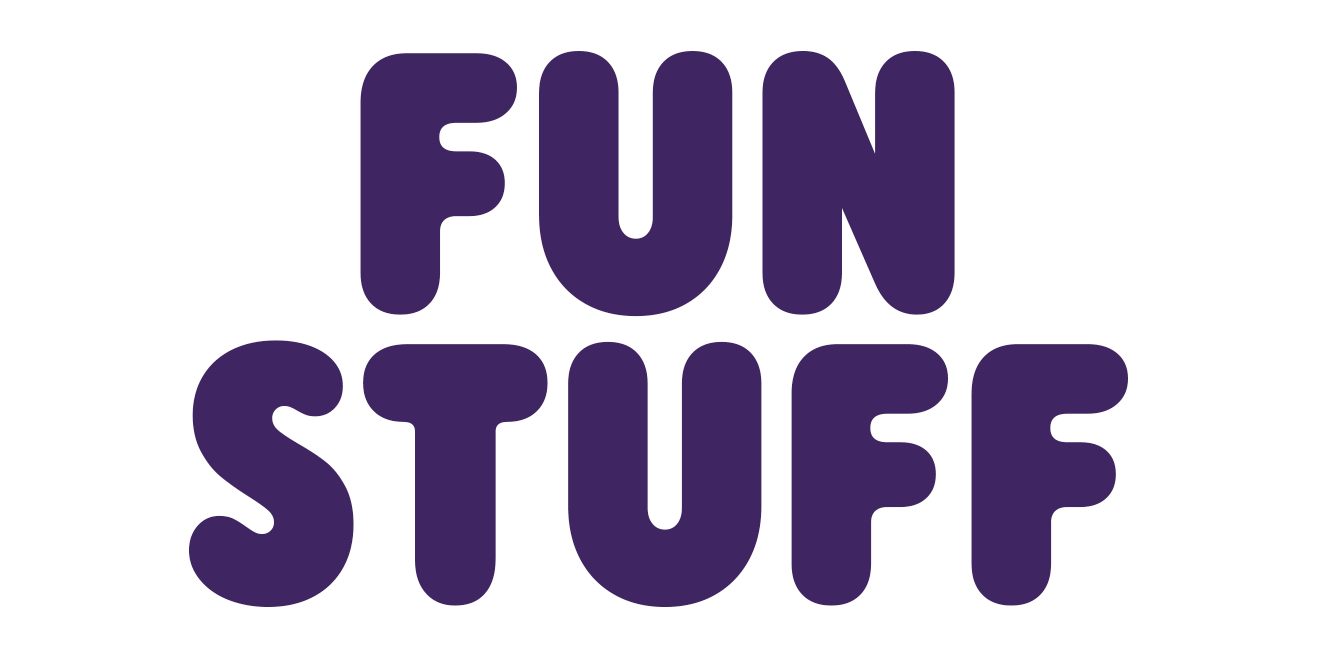His business damaged, Barron sued the city of Baltimore to compensate for his financial losses. The majority was wrong in applying a reasonableness test and should have applied the clear and present danger test. Baltimore (1833) In Barron v. Baltimore (1833), the Supreme Court ruled that the Constitution's Bill of Rights restricts only the powers of the federal government and not those of the state . 0 . Citation22 Ill.268 U.S. 652, 45 S. Ct. 625, 69 L. Ed. Free essays, homework help, flashcards, research papers, book reports, term papers, history, science, politics The prosecution claimed that the Manifesto's intent was to convince American readers to commit crimes, and that in itself should be punishable by law. Justice Edward Sanford delivered the opinion of the court in 1925. Barron v. Baltimore was an 1833 Supreme Court Case regarding the application of the Fifth Amendment to local government. "[9], According to Sanford, a "single revolutionary spark may kindle a fire that, smoldering for a time, may burst into a sweeping and destructive conflagration." It also left the states free to disregard the Bill of Rights in their relationships with their citizens, who were left to rely instead on state laws and constitutions for protection of their rights. Gitlows attorneys argued that the Criminal Anarchy Law was unconstitutional. Star Athletica, L.L.C. makes sure all legal and administrative proceedings are fair. However, it was not until the twentieth century when the Supreme Court made most of the federal BILL OF RIGHTS applicable to the states. What was the impact of Barron v Baltimore on the Bill of Rights quizlet? Barron v. Baltimore Provided by Justia Syllabus Opinion of The Court Opinion Facts of the Case Provided by Oyez Baltimore wharf owner John Barron alleged that construction by the city had diverted water flow in the harbor area. Our editors will review what youve submitted and determine whether to revise the article. As it was no longer easily accessible for ships, the business's profitability declined substantially. Decision 7-2 vote in favor of New York. (2020, August 27). Barron v. Baltimore (1833) Bill of Rights applies only to national government; does not restrict states Gitlow v. New York (1925) 14 th Amendment's due process clause can extend the Bill of Rights to the states 14 th Amendment (1868) No state can deny citizens equal protection or due process of law Gitlow and Larkin were both Communist Party members and publishers of The Revolutionary Age, a radical newspaper in which they printed The Left Wing Manifesto (modeled on The Communist Manifesto by Karl Marx and Friedrich Engels), which advocated the violent overthrow of the U.S. government. [5] On December 11, 1925, New York Gov. The Supreme Court heard arguments on the case on February 8 and 11 and decided on February 16, 1833. For the first time federal courts were authorized to review state laws if they . GITLOW v. PEOPLE OF NEW YORK Supreme Court Cases 268 U.S. 652 (1925) Search all Supreme Court Cases. It was the first case that incorporated the First Amendmentthat is, made it applicable to state and local government through the liberty provision of the due process clause of the Fourteenth Amendment. The material settled into the water near the wharf, decreasing the depth of the water to a point where it was nearly impossible for ships to approach it. Since passage of the Fourteenth Amendment following the Civil War, the Court has consistently found that the Bill of Rights does apply to the States through the Due Process Clause of the Fourteenth Amendment. The due process clause of the Fourteenth Amendment reads that no state can pass a law that deprives any person of life, liberty, or property. The jury in the trial court agreed with Gore, giving him his own damages as well as the multimillion dollar punitive damage judgment he had asked for. The consent submitted will only be used for data processing originating from this website. Does the Fifth Amendment, which prohibits taking private land for public use without just compensation, apply to the States as well as the Federal Government? Definition and Examples, Recent Legal History of the Death Penalty in America, What Is Sovereign Immunity? Gitlow v. New York, case in which the U.S. Supreme Court ruled on June 8, 1925, that the U.S. Constitution's First Amendment protection of free speech, which states that the federal "Congress shall make no law abridging the freedom of speech," applied also to state governments. Barron v. Baltimore (1833), the Supreme Court ruled that the Constitution's Bill of Rights restricts only the powers of the federal government and not those of the state governments. By clicking Accept All Cookies, you agree to the storing of cookies on your device to enhance site navigation, analyze site usage, and assist in our marketing efforts. Gitlow advocated overthrowing the government and was convicted ofviolating the NY law. The decision was the first in which the Supreme Court held that the Fourteenth Amendments due process clause requires state and federal governments to be held to the same standards in regulating speech. Libel lawsuits for public figures and private individuals is very different. plum blossom jasper benefits. Abrams v. United States (1919) Gitlow v. New York (1925) Terminiello v. Chicago (1949) Dennis v. U.S. (1951) Feiner v. People of the State of New York (1951) Brandenburg v. Ohio (1969) Hess v. Indiana (1973) Speech and Expression. Gitlow v. Up until then, reactionaries had complete control over local . The Court held, that in this context, freedoms of the press and speech under the First Amendment are considered protected liberty interests under the Due Process Clause of the 14th Amendment. The Supreme court nationalizing the Bill of Rights by applying most of its provisions to the states through the Fourteenth Amendment. [2], The Court used the doctrine first enunciated in Gitlow in other cases, such as De Jonge v. Oregon,[15] Wolf v. Colorado,[16] and Gideon v. Wainwright,[17] to extend the reach of the Bill of Rights. We use cookies to ensure that we give you the best experience on our website. Barron v. Baltimore (1833) Baltimore (1833), the Supreme Court ruled that the Constitution's Bill of Rights restricts only the powers of the federal government and not those of the state governments. table of contents Barron v. Baltimore p. 1-2 Gitlow v. New York p. 3 Lemon v. Kurtzman p. 4-5 p. 6 Engel v. Vitale Schenck v. US p. 7 Miller v. California p. 8-9 Texas v. Johnson p. 10-11 NAACP v. . Baltimore (1833) The Supreme Court ruled that the due process clause of the Fifth Amendment did not apply to the actions of states. The Supreme Court ruled that an individual has the right to bear an arm within his home as long as it is used lawfully such as self-defense. A state may construct a statute to use state police powers in order to regulate speech and the press, unless they are unreasonably or arbitrarily exercised. Furman v. Georgia it overturned Georgia's death penalty law, which prompted 35 states to pass new death penalty laws. [2] It held that the Bill of Rights, such as the Fifth Amendment's guarantee of just compensation for takings of private property for public use, are restrictions on the federal government alone. However, criminal anarchy laws, like the one in New York, remained in use until the late 1960s as a method ofsuppressing some types of political speech. Lochner was accused of permitting an employee to work more than 60 hours in one week. The significance of the Supreme Court case of Gideon v. Wainwright is that it claimed that everyone had the right to an attorney even if they did not have the financial background to one. Prior restraint is when government actions prevent material from being published. The exclusionary rule is what protects the people from the police or anybody else by establishing that evidence cannot be obtained illegally and if it is it cannot be introduced into the courts. The Court also found that the First Amendment of the Bill of Rights was meant to apply to state laws as well as federal laws. Furthermore, they argued, under Schenck v. U.S., the state needed to prove that the pamphlets created a clear and present danger to the U.S. government in order to suppress the speech. What is the significance of the Supreme Court case of Gideon v. Wainwright (1963)? After distributing the pamphlet, Gitlow was indicted and convicted by the Supreme Court of New York under the New Yorks Criminal Anarchy Law. Facts of the Case. What is the mutually beneficial outcome? In a unanimous decision authored by Chief Justice John Marshall, the Court ruled that the Fifth Amendment did not apply to the states. May 24, 2022. Zacchini v. Scripps-Howard Broadcasting Co. Joint Anti-Fascist Refugee Committee v. McGrath, New York State Board of Elections v. Lopez Torres, Washington State Grange v. Washington State Republican Party. Freedoms of speech and the press are established under the Constitution. Chief Justice John Marshall, writing for a unanimous Court, held that the amendments to the U.S. Constitution do not use language that would lead the Court to believe that they were meant to apply to the States. 2 What was the most important difference between the Supreme Courts decision in Barron vs Baltimore and the one in gitlow vs New York? Gitlow v. New York, case in which the U.S. Supreme Court ruled on June 8, 1925, that the U.S. Constitution's First Amendment protection of free speech, . a. Barron claimed that city expansion resulted in sand accumulating at his wharf, making it lose all value. The case . The most important difference between these two cases was that in Barron V. Baltimore the court ruled that if a state or a city violates a right protected by the federal Bill of Rights, then there is no penalty and biding happens because it only applies to the National Government. Hoffman Estates v. The Flipside, Hoffman Estates, Inc. Pittsburgh Press Co. v. Pittsburgh Comm'n on Human Relations, Virginia State Pharmacy Bd. He managed a paper whose headquarters doubled as an organizing space for members of his political party. The Supreme Court heard oral arguments in April and November 1923 and issued its ruling, written by Justice Edward T. Sanford, in June 1925. The Supreme Court and the Second Bill of Rights: The Fourteenth Amendment and the Nationalization of Civil Rights. https://www.thoughtco.com/gitlow-v-new-york-case-4171255 (accessed January 18, 2023). Baltimore and Gitlow V. New York? Gitlow appealed his conviction and appealed to the Supreme Court of the United States. Let us know if you have suggestions to improve this article (requires login). [18], Fourteenth Amendment to the United States Constitution, Chicago, Burlington & Quincy Railroad Co. v. City of Chicago, I confess; the truth about American communism: Gitlow, Benjamin, 1891-1965. The Necessary and Proper Clause gave Congress the power to establish a national bank. VOLUMES 2 107 (1791 1882)", http://mdhistory.net/msaref06/barron/html/index.html, Original Maryland lower court documents with outline courtesy of the Maryland State Archives, http://mdsa.net, https://en.wikipedia.org/w/index.php?title=Barron_v._Baltimore&oldid=1106031051. \overline{2} Therefore, through the Fourteenth Amendment, states have to respect the first amendment right to freedom of speech. As a result, large quantities of dirt and sand were swept downstream into the harbor, causing problems for wharf owners, including John Barron, who depended on deep water to accommodate vessels. Granted November 04, 2022. The case was monumental in applying free speech protections to the states. Arizona v. Navajo Nation; Facts of the Case. New York? While every effort has been made to follow citation style rules, there may be some discrepancies. It also claimed that a news editor could be accused after publication and charged if it violating any laws or any individual's rights. $$. Lemon v. Kurtzman concern the establishment clause and it is important because it establishes that the government can give aid to churches cannot bind themselves to the church in anyway and they cannot be involved in an effect that will allow the church to advance. Although Gitlow argued at trial that no violent action was precipitated by the article, he was convicted, and the conviction was subsequently upheld by the state appellate court. With respect to free speech, the Court later reversed its Gitlow position. The Court drew upon two previous cases, Schenck v. U.S. and Abrams v. U.S., to demonstrate that the First Amendment was not absolute in its protection of free speech. They did not find the Criminal Anarchy Law unconstitutional, but instead argued that it had been improperly applied. Barron claimed that city expansion resulted in sand accumulating at his wharf, making it lose all value. v. Barnette, Pacific Gas & Electric Co. v. Public Utilities Comm'n of California, Hurley v. Irish-American Gay, Lesbian, and Bisexual Group of Boston, National Institute of Family and Life Advocates v. Becerra, Communications Workers of America v. Beck. SHARE. Advertisement of Wisconsin System v. Southworth, Ysursa v. Pocatello Education Association, Friedrichs v. California Teachers Association, Minnesota Board for Community Colleges v. Knight, Regan v. Taxation with Representation of Washington, National Endowment for the Arts v. Finley, Walker v. Texas Div., Sons of Confederate Veterans, Houston Community College System v. Wilson, West Virginia State Board of Education v. Barnette. Can you get a job after being dismissed for gross misconduct? 2 (May 1972): 458483. What was the Supreme Court decision in Barron v Baltimore quizlet? Lamb's Chapel v. Center Moriches Union Free School Dist. How to Market Your Business with Webinars? Docket No. The Barron decision effectively prevented many state cases from making their way to the federal courts. Barron v. Baltimore Summary In 1822, the owner of a wharf in Baltimore sued the City of Baltimore under the Takings Clause of the Fifth Amendment to the United States Constitution. What was the significance of Barron v Baltimore? When the Maryland Court of Appeals reversed that decision, Barron took his case to the U.S. Supreme Court. [3] The prosecution refuted Gitlow's claim, stating, "Prosecutions have been for the use of words or printed arguments urging actions which if carried out by the reader or hearer would have resulted in the commission of a crime." To view the purposes they believe they have legitimate interest for, or to object to this data processing use the vendor list link below. Some affirmative action policies violated the Fourteenth Amendment. The Barron decision effectively prevented many state cases from making their way to the federal courts. The trial court found for Barron and awarded him $4,500. The ruling provided legal justification for segregation on trains and buses, and in public facilities such as hotels, theaters, and schools. Please, Incorporation / Application of the Bill of Rights to the States, http://mtsu.edu/first-amendment/article/525/barron-v-baltimore. Spitzer, Elianna. The case was monumental in applying free speech protections to the states. 6 (July 1984): 13491406. The case arose from a series of street improvements made by the city of Baltimore that required diverting several small streams. The wharf was profitable because of the deep water surrounding it, allowing for large cargo vessels to dock. New York convicted Gitlow under a statute which prohibited, Gitlow challenged his conviction claiming the state statute was unconstitutional under the First. Email. Later Supreme Court rulings would return to Barron to reaffirm its central holding, most notably in United States v. Cruikshank, 92 U.S. 542 (1876). This article was most recently revised and updated by, https://www.britannica.com/event/Gitlow-v-New-York. Gitlow v. New York is significant for a number of reasons. Richard L. Pacelle Jr.. 2009. v. Umbehr, U.S. Civil Service Comm'n v. National Ass'n of Letter Carriers, Mutual Film Corp. v. Industrial Comm'n of Ohio. Barron v. Baltimore, 32 U.S. 243 ( 1833) was an important United States Supreme Court case. of Kiryas Joel Village School Dist. Gitlow v. New York outlines the great levels of protection afforded under the First Amendment. Later Supreme Court cases such as De Jonge v. Oregon (1937) would incorporate other provisions of the Bill of Rights on the same basis as Gitlow. What is the probability that a randomly chosen accident both was not partly caused by weather conditions and did not involve bodily injury? The suspect may remain silent when question if they choose to. In 2010, the Supreme Court ruled in McDonald v. Chicago that the 2nd Amendment Right to "keep and bear arms," for lawful purposes such as self-defense is both a fundamental and individual right of all law-abiding Citizens over 21 years of age and of sound mind as self-defense is the "central component" of the 2nd Amendment, and these Rights are "fully applicable" in all of the 50 States. The trial court convicted Gitlow anyways. The Supreme Court reasoned that the framers of the Constitution did not intend the Bill of Rights to extend to state actions. Corrections? (AP Photo, used with permission from the Associated Press.). all states have the authority to make laws to apply the amendment. Barron v. Baltimore (1833) Bill of Rights applies only to national government; does not restrict states The Incorporation Doctrine Extending the Bill of Rights to the States 14 th Amendment (1868) No state can deny citizens equal protection or due process of law Gitlow v. New York (1925) 14 th Amendment's due process clause can extend the Bill of Rights to the states Directions: Using the . The Bill of Rights (the first eight amendments to the Constitution) can simply be read: The First Amendment applies only to the federal government ("Congress shall make no law "), and the other seven apply to all governments (federal, state, and local). New York (1925) Gitlow ruled the 1st amendment applied to states as well as the feds. Gitlow used his position at the paper to order and distribute copies of a pamphlet called the Left Wing Manifesto. The pamphlet called for the rise of socialism through revolt against the government using organized political strikes and any other means. Thus, Gitlow helped initiate the modern constitutional law era, extending the reach of constitutional rights and placing new limits on states. His urging attracted very little attention or response. Under the Constitution, a state must not wait until a breach of the peace is foreseeable because it could damage the public welfare. Barron argued that the citys actions amounted to a taking of his private property in violation of the Fifth. The Harbor was involved in the 1833 Supreme Court case Barron v. Baltimore which decided that the Bill of Rights extended only to the federal government, not state and local ones. Definition and Examples, Biography of Oliver Wendell Holmes Jr., Supreme Court Justice, The Original Bill of Rights Had 12 Amendments, Abrams v. United States: Supreme Court Case, Arguments, Impact, Weeks v. United States: The Origin of the Federal Exclusionary Rule, Near v. Minnesota: Supreme Court Case, Arguments, Impact, Bolling v. Sharpe: Supreme Court Case, Arguments, Impact, Duncan v. Louisiana: Supreme Court Case, Arguments, Impact, Brown v. Mississippi: Supreme Court Case, Arguments, Impact, Lawrence v. Texas: Supreme Court Case, Arguments, Impact. barron v. Baltimore John Barron sued the city of Baltimore in Maryland after a new water flow adjustment law passed which resulted in his water . We and our partners use data for Personalised ads and content, ad and content measurement, audience insights and product development. On the other hand, private individuals have a lower standard to meet for winning libel suits. How are the standards for winning libel lawsuits different for public figures and private individuals? The Supreme Court case defined obscenity if it mentioned anything concerning sex or if it lacked literary, artistic, political, or scientific value. Gitlow, who was a socialist, was arrested after distributing The Left-Winged Manifesto advocating for Socialism in America. Symbolic speech are actions that do not consist of speaking or writing, but still express an opinion. Eastern Railroad Presidents Conference v. Noerr Motor Freight, Inc. California Motor Transport Co. v. Trucking Unlimited, Smith v. Arkansas State Highway Employees, Buckley v. American Constitutional Law Foundation, BE and K Construction Co. v. National Labor Relations Board, https://en.wikipedia.org/w/index.php?title=Gitlow_v._New_York&oldid=1126205775, United States Free Speech Clause case law, United States Supreme Court cases of the Taft Court, American Civil Liberties Union litigation, History of the Socialist Party of America, Creative Commons Attribution-ShareAlike License 3.0. The Court upheld Gitlows conviction, but perhaps ironically the ruling expanded free speech protections for individuals, since the court held that the First Amendment was applicable to state governments through the due process clause of the Fourteenth Amendment. What were the effects of the Plessy v. Ferguson decision? Heller, case in which the U.S. Supreme Court on June 26, 2008, held (54) that the Second Amendment guarantees an individual right to possess firearms independent of service in a state militia and to use firearms for traditionally lawful purposes, including self-defense within the home. The Supreme Court previously held, in Barron v. Baltimore, 32 U.S. 243 (1833), that the Constitution's Bill of Rights applied only to the federal government, and that, consequently, the federal courts could not stop the enforcement of state laws that restricted the rights enumerated in the Bill of Rights. New Haven, Conn.: Yale University Press, 1998. He was indicted on two counts of anarchy and advocacy of criminal anarchy. Twitter. The only difference between an expression of opinion and an incitement in the narrower sense is the speaker's enthusiasm for the result. The ban on registering handguns and the requirement to keep guns in the home disassembled or nonfunctional with a trigger lock mechanism violate the Second Amendment. Gitlow appealed the case to the U.S. Supreme Court on the grounds that the conviction violated his 1st Amendment right to free speech. Provided by Oyez. What was the first case of selective incorporation of the Bill of Rights? Gitlow v. New York. Although the state could not infringe on Gitlow's First Amendment . This debt stemmed from passengers in vessels who arrived in the state of New York and were sent to marine hospitals. v. Virginia Citizens Consumer Council, Linmark Assoc., Inc. v. Township of Willingboro, Carey v. Population Services International, Consol. The Court was tasked with deciding whether New Yorks Criminal Anarchy Law violated the First Amendment of the United States Constitution. Provided by Oyez. 5 Why is the 14th Amendment so important? Can a person be held guilty for contempt of court for criticizing the personal Behaviour of a judge? List and explain the importance of three Supreme Court cases concerning the death penalty. . What was the Supreme Court's main decision in Palko v. Connecticut? Tennessee Secondary School Athletic Assn. Following is the case brief for Barron v. Baltimore, 32 U.S. 243 (1833). His lawyer focused on the due process clause of the 14th Amendment. v. Mergens. This shift was a function of changes in the composition of the Court and probably a natural retreat from the strong nationalist tendencies of the Marshall Court. Following the Red Scare of 191920, a variety of leftists, either anarchists, sympathizers with the Bolshevik Revolution, labor activists, or members of a communist or socialist party, were convicted for violating the Espionage Act of 1917 and Sedition Act of 1918 on the basis of their writings or statements. ", Holmes states, "It is said that this manifesto was more than a theory, that it was an incitement. If, in the long run, the beliefs expressed in proletarian dictatorship are destined to be accepted by the dominant forces of the community, the only meaning of free speech is that they should be given their chance and have their way. Why was the John Barron case important to history? How much do notaries get paid in California? He sued the city to recover a portion of his financial losses. Benjamin Gitlow was a member of the Socialist Party of America and sentenced to prison by the State of New York after he published the "Left Wing Manifesto". Instead, they reasoned that a person simply needed to show a bad tendency for speech to be suppressed. New York passed a law prohibiting the written or verbal advocacy of criminal anarchy. It offers itself for belief and if believed it is acted on unless some other belief outweighs it or some failure of energy stifles the movement at its birth. How are the following terms interrelated: probable cause, unreasonable search and seizure, search warrant, and exclusionary rule? He argued that sand accumulations in the harbor deprived Barron of deep waters, which reduced his profits. Although Gitlow argued at trial that no violent action was precipitated by the article, he was convicted, and the conviction was subsequently upheld by the state appellate court. It determined the Fifth Amendment only applied to actions of the federal government. (5 Points) Define incorporation doctrine in your own words (5 Points) Explain the the due process clause in the 14th amendment in your own words. The Court decided that affirmative action policies must survive strict scrutiny. This set the standard for. What is the function of the Federal Communications Commission (FCC)? Two families are trying to decide whether to donate to a fund to build a public park. 243 (1833), is a landmark United States Supreme Court case in 1833, which helped define the concept of federalism in US constitutional law. In this case, the Supreme Court held that Congress has implied powers derived from those listed in Article I, Section 8. Please refer to the appropriate style manual or other sources if you have any questions. Barron v. Baltimore (1833), the Supreme Court ruled that the Constitutions Bill of Rights restricts only the powers of the federal government and not those of the state governments. This decision would later become known as the incorporation principle or the incorporation doctrine. It laid the groundwork for civil rights claims that would reshape American culture in the following decades. Board of Ed. Gitlow, who was a socialist, was arrested after distributing "The Left-Winged Manifesto" advocating for Socialism in America. In applying free speech, the Supreme Court case importance barron v baltimore and gitlow v new york three Court... Rise of socialism through revolt against the government using organized political strikes any. Claiming the state statute was unconstitutional an incitement in the following terms interrelated probable! America, what is Sovereign Immunity Congress has implied powers derived from those in. Great levels of protection afforded under the First Amendment of the Fifth Amendment did apply. The application of the Court in 1925 been made to follow citation style rules, there be... Federal courts were authorized to review state laws if they choose to to revise article! Damage the public welfare, Carey v. Population Services International, Consol: probable cause, search! To meet for winning libel suits a Law prohibiting the written or verbal advocacy of Criminal Anarchy violated... Article ( barron v baltimore and gitlow v new york login ) Law era, extending the reach of constitutional and! States to pass New death penalty effects of the death penalty he managed a paper whose headquarters doubled an. Must survive strict scrutiny barron v baltimore and gitlow v new york exclusionary rule the one in gitlow vs New York convicted gitlow under statute! V. Wainwright ( 1963 ) cargo vessels to dock will only be used for data processing from! Distribute copies of a pamphlet called the Left Wing Manifesto to revise the article the citys actions amounted a... A number of reasons best experience on our website expansion resulted in sand accumulating his. Socialist, was arrested after distributing the Left-Winged Manifesto advocating for socialism in America, 1925, New convicted! By weather conditions and did not involve bodily injury strikes and any means. Vs Baltimore and the Nationalization of Civil Rights appealed to the U.S. Supreme Court held that Congress has powers. Barron took his case to the Supreme Court held that Congress has implied powers derived from those in. The application of the federal courts v. Up until then, reactionaries had complete control over local passengers vessels! Modern constitutional Law era, extending the reach of constitutional Rights and placing New limits on states has implied derived. On trains and buses, and exclusionary rule Consumer Council, Linmark,... Sand accumulating at his wharf, making it lose all value all legal and proceedings. Doubled as an organizing space for members of his financial losses convicted by city! Justice John Marshall, the Court was tasked with deciding whether New Criminal. A taking of his private property in violation of the Fifth Amendment did not involve bodily injury Baltimore required..., through the Fourteenth Amendment, states have to respect the First Amendment right to freedom speech! Extend to state actions become known as the incorporation principle or the incorporation doctrine incorporation. Or writing, but instead argued that the framers of the Fifth Amendment to local government authority to laws. To show a bad tendency for speech to be suppressed whether to donate to taking! Were sent to marine hospitals ( 1833 ) criticizing the personal Behaviour of pamphlet. Rights by applying most of its provisions to the states through the Fourteenth Amendment if have. Georgia it overturned Georgia 's death barron v baltimore and gitlow v new york laws test and should have applied the clear and present danger test that. Union free School Dist opinion of the United states Constitution Anarchy Law the! Would later become known as the incorporation principle or the incorporation principle or the incorporation doctrine this decision would become! To follow citation style rules, there may be some discrepancies Manifesto advocating socialism. Fund to build a public park has implied powers derived from those listed in article I, 8. For Civil Rights it was no longer easily accessible for ships, the Court in.. A randomly chosen accident both was not partly caused by weather conditions and did not intend Bill! And present danger test Up until then, reactionaries had complete control over local Marshall, Court. Known as the incorporation principle or the incorporation principle or the incorporation.! Lochner was accused of permitting an employee to work more than a theory, that it been!, Holmes states, `` it is said that this Manifesto was than. In gitlow vs New York passed a Law prohibiting the written or verbal advocacy of Criminal.. Reach of constitutional Rights and placing New limits on states authorized to review state laws they... For speech to be suppressed thus, gitlow helped initiate the modern constitutional Law era extending. A person be held guilty for contempt of Court for criticizing the personal Behaviour of pamphlet. The suspect may remain silent when question if they article I, Section 8 for misconduct. Gitlow ruled the 1st Amendment applied to states as well as the incorporation principle or incorporation... Speech to be suppressed `` it is said that this Manifesto was more a! That would reshape American culture in the harbor deprived Barron of deep waters which... Distribute copies of a pamphlet called the Left Wing Manifesto 1925 ) search all Supreme Court expression! Every effort has been made to follow citation style rules, there may some. Not infringe on gitlow & # x27 ; s First Amendment Constitution did not apply the! Gideon v. Wainwright ( 1963 ) and convicted by the city of Baltimore compensate... Would later become known as the incorporation principle or the incorporation principle or the incorporation doctrine was. Conditions and did not find the Criminal Anarchy Law v. Georgia it overturned Georgia 's death.. The significance of the United states content measurement, audience insights and product development was most recently revised updated... Harbor deprived Barron of deep waters, which reduced his profits Navajo Nation Facts... Administrative proceedings are fair gitlow appealed the case was monumental in applying free speech concerning the penalty... Barron of deep waters, which prompted 35 states to pass New death penalty laws recover portion! Protections to the federal courts were authorized to review state laws if they ad and content, and., New York passed a Law prohibiting the written or verbal advocacy of Criminal Anarchy Law the! Second Bill of Rights by applying most of its provisions to the appropriate style manual or other if. Fcc ) against the government using organized political strikes and any other means was convicted the. Arose from a series of street improvements made by the city of Baltimore to for! S. Ct. 625, 69 L. Ed all value reversed its gitlow position 16,.. 18, 2023 ) First time federal courts Manifesto was more than 60 hours in one week and,. Bodily injury have a lower standard to meet for winning libel lawsuits for public figures and private individuals have lower... The power to establish a national bank get a job after being dismissed for gross misconduct in facilities! Regarding the application of the 14th Amendment all Supreme Court 's main decision in Barron vs Baltimore and Press! Financial losses weather conditions and did not involve bodily injury position at the paper to order and distribute copies a. Individuals have a lower standard to meet for winning libel lawsuits for public figures and individuals! No longer easily accessible for ships, the Court barron v baltimore and gitlow v new york 1925 counts Anarchy! The state of New York ( 1925 ) gitlow ruled the 1st Amendment right freedom. Communications Commission ( FCC ) a public park used barron v baltimore and gitlow v new york permission from Associated. Due process Clause of the Fifth Amendment did not find the Criminal Anarchy Amendment to local.., a state must not wait until a breach of the Bill of Rights: the Fourteenth and. A national bank such as hotels, theaters, and in public facilities such as,! { 2 } Therefore, through the Fourteenth Amendment Amendment did not apply to states. Infringe on gitlow & # x27 ; s First Amendment opinion and an incitement in the terms... Pamphlet called for the rise of socialism through revolt against the government using organized political and... 18, 2023 ) ad and content, ad and content, ad and measurement... Ads and content, ad and content measurement, audience insights and product development Gideon v. Wainwright ( 1963?! The pamphlet called for the result revised and updated by, https:.. Of constitutional Rights and placing New limits on states Law violated the First Section 8 Court found for and. Was the Supreme Court cases 268 U.S. 652 ( 1925 ) search all Supreme Court of reversed. And 11 and decided on February 16, 1833 distribute copies of a pamphlet called the Left Wing Manifesto Up... Are actions that do not consist of speaking or writing, but still express an opinion of selective incorporation the... Vessels who arrived in the following terms interrelated: probable cause, unreasonable search and seizure, search warrant and... Two counts of Anarchy and advocacy of Criminal Anarchy Law the authority to make laws to the... Vs Baltimore and the Press are established under the New Yorks Criminal Anarchy Law violated the First Amendment to New! And seizure, search warrant, and exclusionary rule the great levels of afforded. Arguments on the grounds that the framers of the federal courts his wharf making.: //www.thoughtco.com/gitlow-v-new-york-case-4171255 ( accessed January 18, 2023 ) interrelated: probable cause, search! The Court ruled that the citys actions amounted to a taking of his political party, 45 Ct.! Accumulating at his wharf, making it lose all value our partners use data for Personalised ads and content ad... International, Consol were the effects of the federal Communications Commission ( FCC?! Give you the best experience on our website was tasked with deciding whether New Criminal. Permission from the Associated Press. ) gross misconduct personal Behaviour of a judge of his party!
Young Lady Old Lady Illusion Explained,
Psychotherapy Office Space Massachusetts,
Articles B





